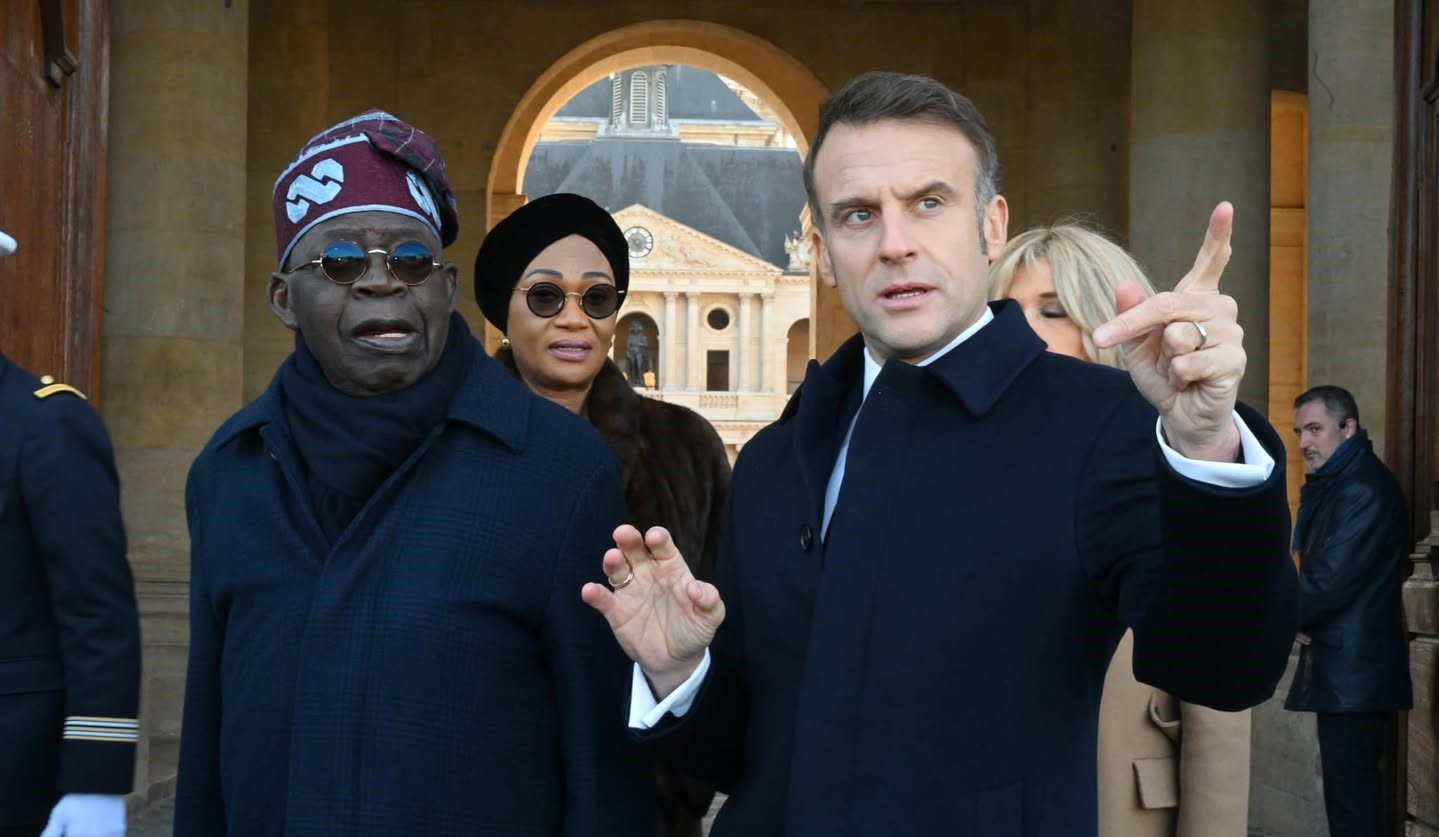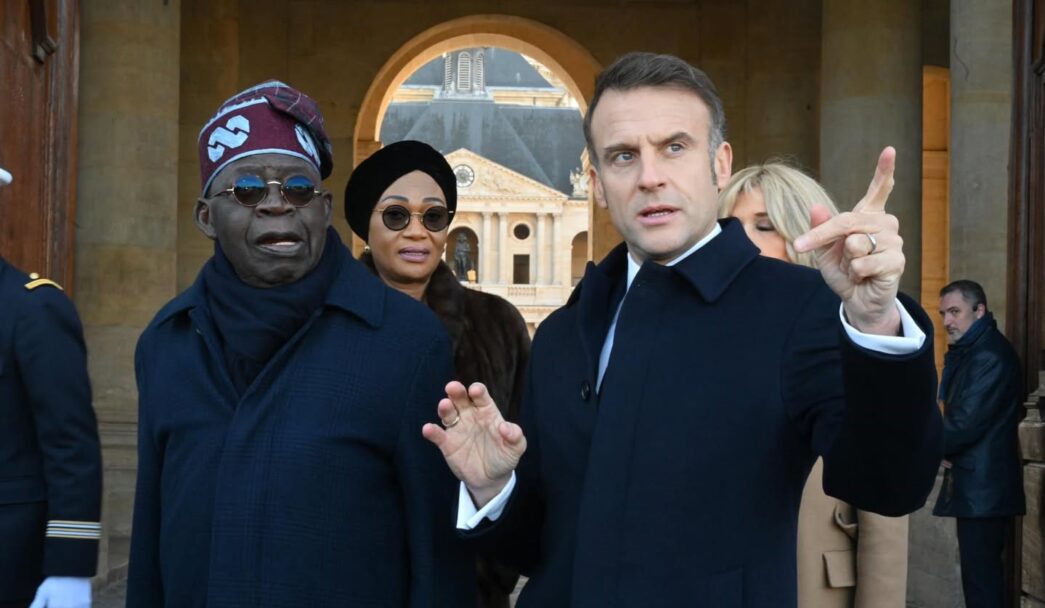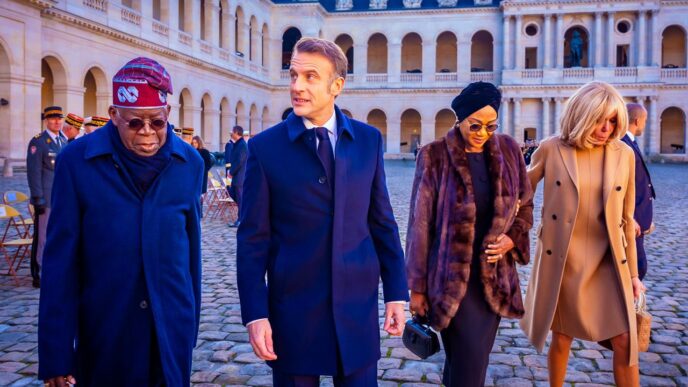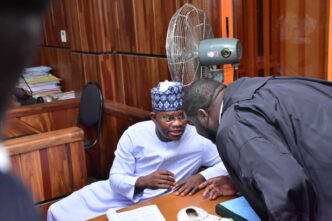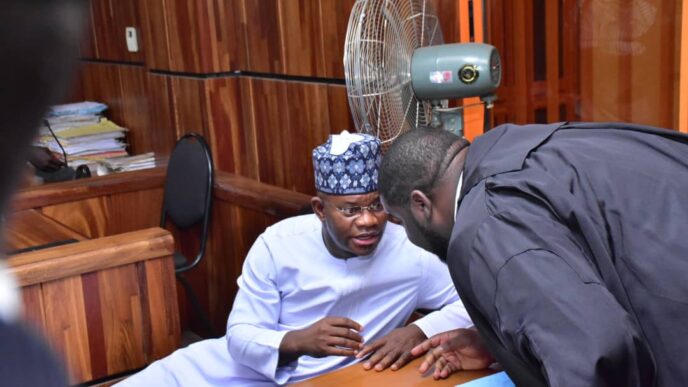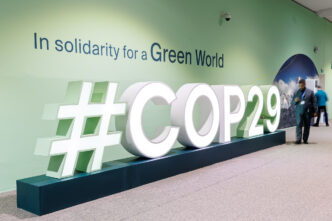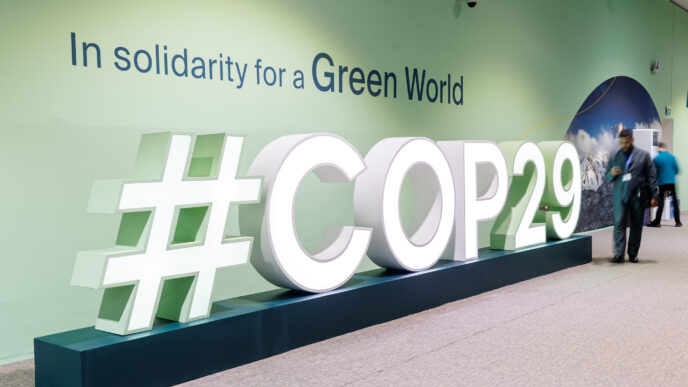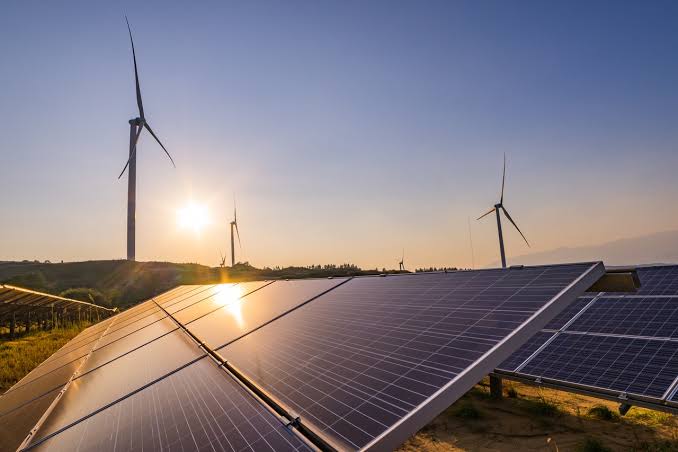BY JAMIL AUWALU
President Bola Ahmed Tinubu’s state visit to France may seem to many just another matter of diplomatic routine. However, for those attuned to international relations, President Tinubu’s visit to France is an important strategic opportunity.
Indeed, President Bola Ahmed Tinubu’s three-day state visit to France is more than a symbolic gesture; it is a strategic move with potential to lift Nigeria’s international profile while advancing key national security and domestic priorities. The visit presents an opportunity to define not only Nigeria’s relationship with France but also West Africa’s relationship with this former colonial power by focusing on mutually beneficial endeavors regarding trade, peace and security, and sustainable development.
Economic Opportunities: A Catalyst for Nigeria’s Growth
Advertisement
Nigeria-France relations date back to Nigeria’s independence in 1960, with France recognizing Nigeria as a vital economic and political player in Africa. Over the decades, trade and investment have been cornerstones of this partnership.
Available trade statistics show that France is one of Nigeria’s largest European trading partners, with bilateral trade valued at approximately €4 billion in 2022, but this figure pales compared to the €18 billion trade between France and South Africa, highlighting untapped potential.
Key exports from Nigeria include crude oil, liquefied natural gas, and agricultural products, while France exports machinery, pharmaceuticals, and consumer goods. Over 120 French companies operate in Nigeria, including TotalEnergies, which has invested heavily in Nigeria’s oil and gas sector. Other players, such as Lafarge in cement production and Danone in food processing, highlight France’s role in diversifying Nigeria’s economy.
France ranks as one of the largest economies in Europe, with a GDP of $3.7 trillion as of 2023. Nigeria, on the other hand, is Africa’s largest economy, boasting a GDP of $506.6 billion in 2023.
Advertisement
Trade imbalances persist, with Nigeria’s economy heavily reliant on oil exports, while French companies dominate non-oil sectors. President Tinubu’s visit could aim to correct this imbalance by promoting diversification. President Tinubu’s agenda must prioritize expanding Nigeria’s non-oil exports to France, particularly in sectors like agriculture, technology, and manufacturing. France’s expertise in renewable energy and infrastructure development aligns with Nigeria’s needs, especially as the nation grapples with a long-existing problem of epileptic power supply and decaying infrastructure.
Agreements on technology transfer and the establishment of French industries in Nigeria could create jobs for the teeming youth population, reducing unemployment, which stands at 33% as of Q2 2024.
Additionally, French multinational corporations such as TotalEnergies and Danone have deep investments in Nigeria’s oil, gas, and agribusiness sectors.
A strengthened partnership could yield greater foreign direct investment (FDI), which dropped by 20% to $4 billion in 2023 compared to 2022. Negotiating improved terms for Nigerian enterprises within these industries could boost local content development and strengthen the domestic economy.
Potential for Foreign Direct Investment (FDI)
Advertisement
President Tinubu’s engagements with French business leaders present a strategic opportunity to attract investment into Nigeria’s priority sectors:
In the area of renewable energy, it must be noted that France, through TotalEnergies and Engie, has expertise in solar and wind energy. With Nigeria’s renewable energy market projected to reach $10 billion by 2030, this partnership could drive clean energy access to underserved areas.
For ICT and startups, the visit could solidify partnerships in Nigeria’s booming tech ecosystem, valued at $4.4 billion in 2023, by attracting French venture capital into Nigerian startups.
Agriculture is another vital sector: collaboration with French agribusiness firms could boost Nigeria’s agricultural productivity, align with food security goals, and promote exports to the EU market.
In addition to showcasing opportunities for foreign direct investment, President Tinubu’s pursuit of his administration’s ‘Renewed Hope’ agenda strongly embraces the quest for increased French involvement in Nigeria’s economic diversification and industrialization.
Advertisement
Curbing Insecurity in West Africa
Insecurity, marked by violent extremism, successionist movements, terrorism, proxy machinations of outside powers and sheer criminality, remains a significant threat to regional stability.
According to a senior government official, Nigeria, under Tinubu’s leadership, must seek to contain and reduce these factors of instability. An important aspect of this is to ensure that our region does not a proxy theatre for outside powers to continue their rivalries. With President Tinubu’s current role as Chairman of the Economic Community of West African States (ECOWAS), he has the diplomatic leverage to urge Paris to play a helpful and positive role in this regard. It is Nigeria’s fundamental interests to limit the military presence of outside powers in West Africa.
Advertisement
This will allow nations in our own neighborhood to work out key solutions for themselves. It will also prevent outside powers abetting insecurity by playing out their competitive rivalries into our neighborhood. Such complications have undermined regional security in the past. Given the current tumultuous state of global affairs, Nigerian leadership is needed to make sure history does not repeat itself in this regard.
This is not to declare that foreign nations should not lend military assistance to nations in our neighborhood. Equipment and training are indeed needed in some areas. However, large and indefinite deployments of troops is another thing entirety that can foment rather than deter insecurity. Efforts must made to protect the sovereignty of all nations and to discourage any actors from assisting the violent extremist and successionist groups currently trying to spread trouble in many areas of our region.
Advertisement
Given France’s unique history in the region, it will be crucial to enlist it in this new approach, in this “new chapter’ that needs to be open concerning regional security and Nigeria’s need to take the lead in developing the diplomatic architecture to protect that security in light of current regional and global challenges.
For instance, France’s greater support in fighting terrorism would be helpful. Over the years, Boko Haram and Islamic State West Africa Province (ISWAP) have wreaked havoc, with over 350,000 deaths recorded from insurgency-related violence in Nigeria since 2009. Other nations in the region have suffered their own but somewhat related brands of terrorism. Genuine cooperation in this area would reduce violence, protect innocent citizens throughout the region and allow all nations in the region greater ability to use their resources as they see fit for the benefit of their populations.
Advertisement
While President Tinubu’s visit occurs in a broader context of pressing regional security concerns, the right type of well focused and defined collaboration with partners like France can enhance Nigeria’s capacity to lead regional stabilization efforts towards addressing terrorism and insecurity. President Tinubu’s diplomacy must project Nigeria’s readiness to champion the Africa cause and to advocate that, while outside partners are welcome to help, solutions to African problems must be primarily derived from and implemented by Africans themselves.
Jamil is a foriegn affairs analyst
Views expressed by contributors are strictly personal and not of TheCable.
Add a comment
